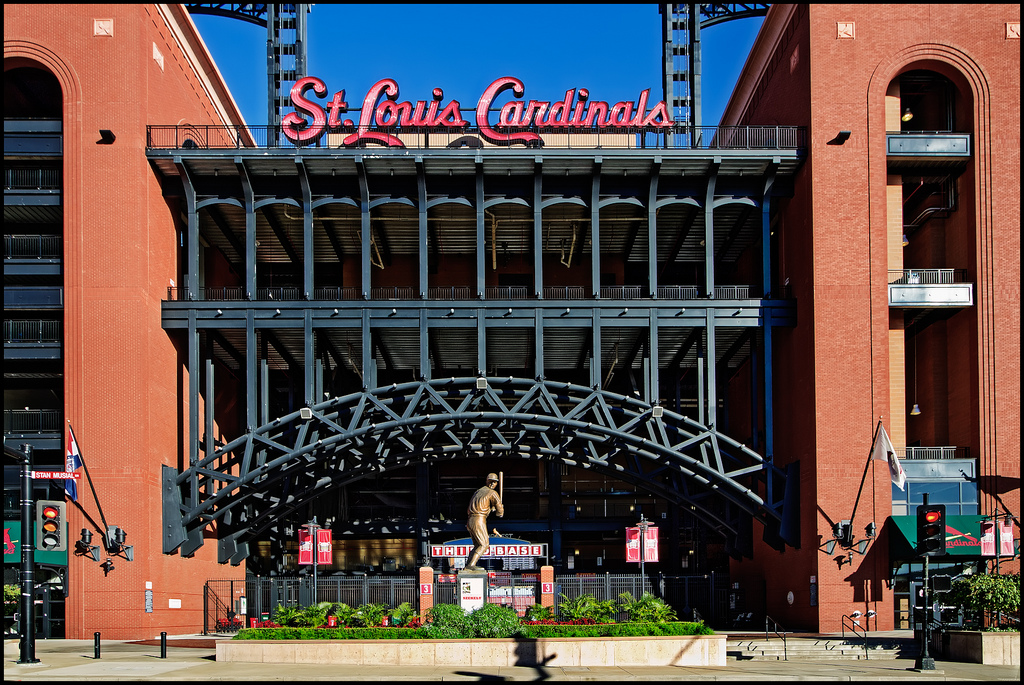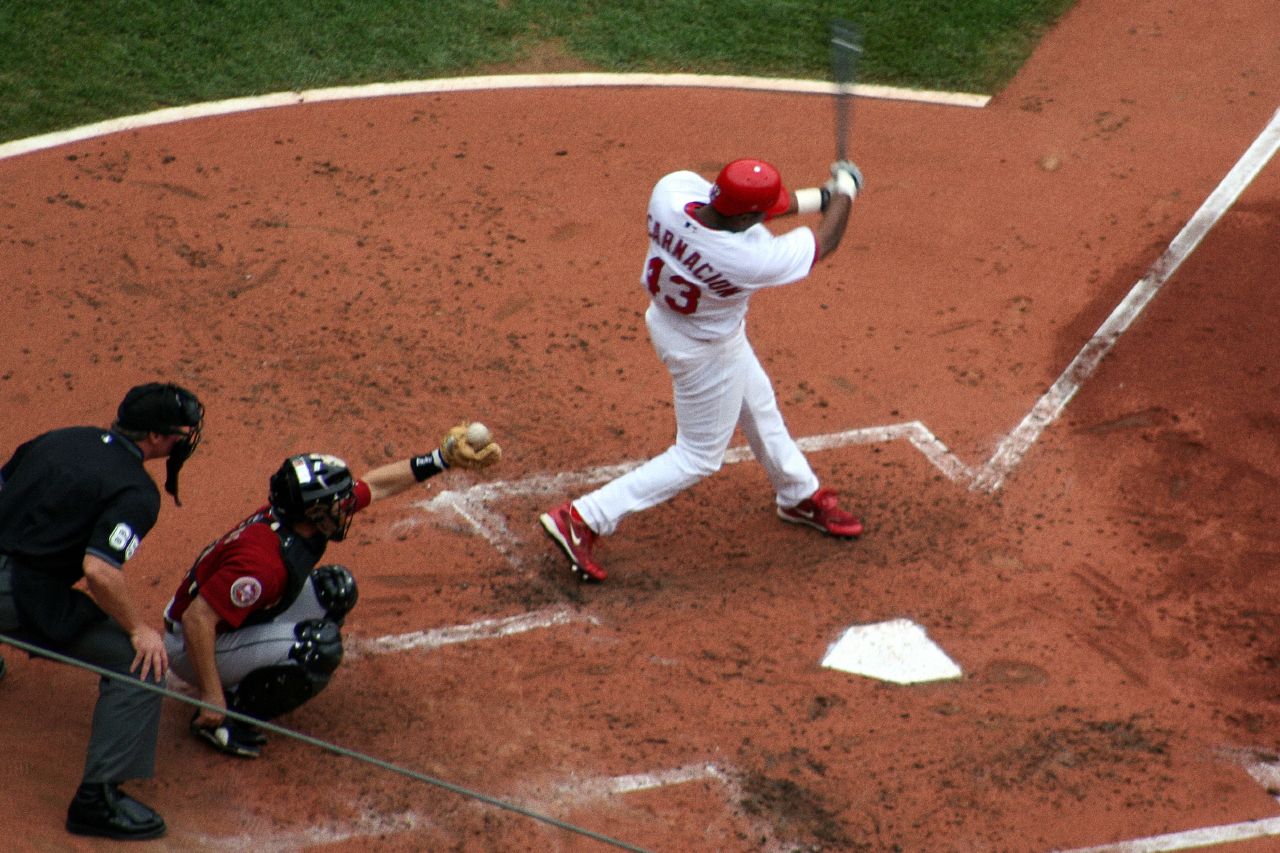It’s October in Minnesota, and I can’t help but notice and admire all the beautiful things.
I love the bright flame colored trees, the decorative gourds, the last harvest of tomatoes, the taste of chocolate chip pumpkin bread, a hot cup of tea, and, of course, baseball.
Yes, baseball is a beautiful thing. I have loved baseball as long as I have been conscious of it. It was a love passed down to me from my family in St. Louis. I am told that my grandmother listened to the games on the radio while preparing dinner, and my dad still talks about the 1968 series loss to the Detroit Tigers. My first October in existence, the Cardinals lost the 1985 World Series to the Kansas City Royals.
My first memories of the Cardinals are watching them on television in the 1996 National League Championship. The Cardinal favorite Ozzie Smith flipped backflips on my parent’s television screen, and I was hooked. I made it to my first game the next year on my birthday with my aunt, and then we never missed a birthday for years after.

Being raised in the tradition of loving baseball is similar to being raised Catholic, or even coming into the traditions of Catholicism in one’s adult life. The tradition has been passed down from generation to generation.
Baseball has rules for how it is to be played, giving it an aspect of liturgy. Of course, I do not mean that baseball is the same as the Holy Mass or the other liturgical actions of the Church. But I do mean that the rules of the game create liturgy-like structures for the game to be played within. For example:
- There are the three outs that must be made at the top and the bottom of each inning. It does not matter how many pitchers, pitches, batters, hits, and runs are in an inning, the three outs have to be made.
- Each team gets nine chances to score more runs than the other team.
- The bases make a perfect diamond.
- In theory, the players are spaced evenly around the field.
- Each batter has up to three strikes or four balls, but anything can happen.
Every ball in play can lead to many different outcomes, but there is the standard of the rules to follow. It is a leisurely art form, and maybe that is why some dislike it. It has a slow rhythm of each pitch, the windup and the release, accented by the excitement of the strikeout or the line drive. The play of the game switches from a fastball to a ground out, a single to a double play. Each player has his own role on the field, and waits for the unexpected.
Further, the rules are enforced by a human umpire (who may not always get the call right), but that is part of the game and part of the tradition. Imperfect humans try their luck against each other. The pitcher and catcher try to outsmart the batter and the batter seeks to foil their plan and get on base. The fielders wait for the ball to be hit near them, making swift movements to get to the ball and send it quickly to the right base. A curveball that tricks a batter leads to a beautiful strikeout. A pitcher’s mistake over the plate leads to the arching home run over the left-field wall on a field that extends to infinity. There is no end-zone, just the fair territory beyond the wall that goes on and on.
There is the repetition of the pitch after pitch. The sound of the crack of the bat. The movement in the hustle of the outfielder. The beauty in the diving catch to save the inning. The careful bunt to advance the runner. The patient batter drawing a walk.

There is something so beautiful and liturgical in it all, even reminiscent of the liturgical actions of the Mass: the up and down of the faithful, and the kneeling at the consecration; the genuflections before the tabernacle; the repetitive actions of the priest and servers.
We as humans thrive on the liturgical parts of life. We love them, and we need them. The changing of the seasons when Summer turns to Autumn and Autumn leads to playoff baseball, and then comes Winter. These things are part of our lives, and provide us the foundation to live full human lives.
And of course they point us to the unchanging God, who is creator of them all.
Originally posted on Truth & Charity


